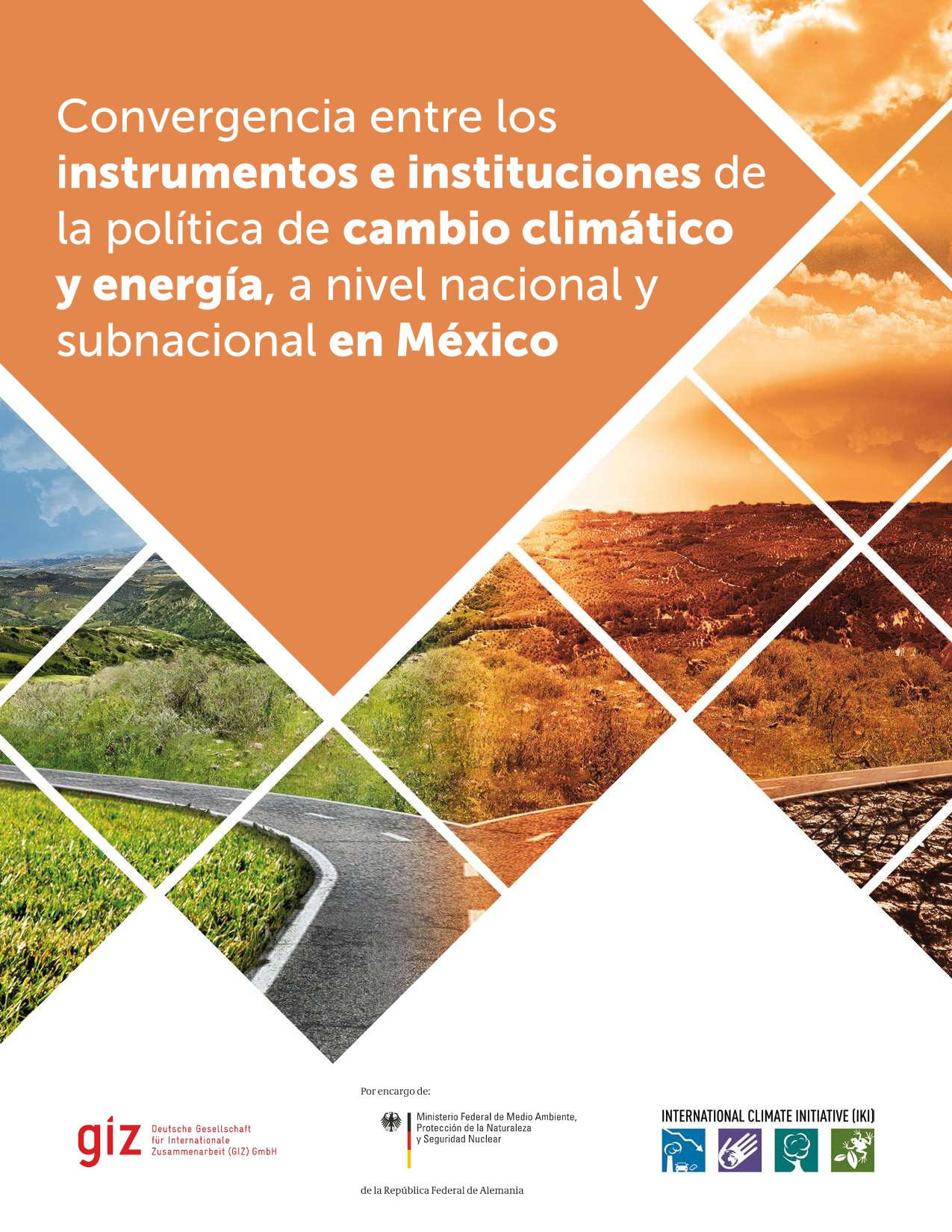Mexico has committed to ambitious climate change mitigation goals, for which the contribution of the energy sector is essential.
This study presents the result of the evaluation of the convergence between Mexico’s climate change mitigation policies and energy policy at the national and subnational levels. The study, developed by the project “Enhancing the Coherence of Climate and Energy Policies in Mexico” (CONECC) of the Deutsche Gesellschaft für Internationale Zusammenarbeit (GIZ) GmbH (German Cooperation for Sustainable Development), analyzes whether climate change and sustainable energy policies considered in Mexico are aligned and enable the energy sector to reach its objectives in addition to fulfilling the climate goals that Mexico has assumed in its legislation and internationally.
The analysis considers the benefits which the convergence of policies (instruments, processes and governance structures) presents for the climate and energy sector, and identifies opportunities to move towards mainstreaming. The study also analyzes the public policies of both agendas, focusing on high energy consumption sectors: electricity, oil and gas, transportation, buildings, and industry.
The study results in more than forty recommendations that allow delineating action towards inter-institutional convergence. These include the need for strengthening institutional capacities, greater inter-institutional coordination based on instruments and processes, promotion of sub-national planning, attribution analysis, identification of mainstream responsibilities and dialogue between sector heads.

